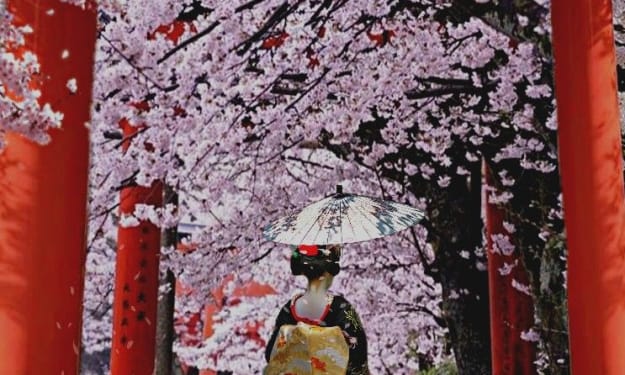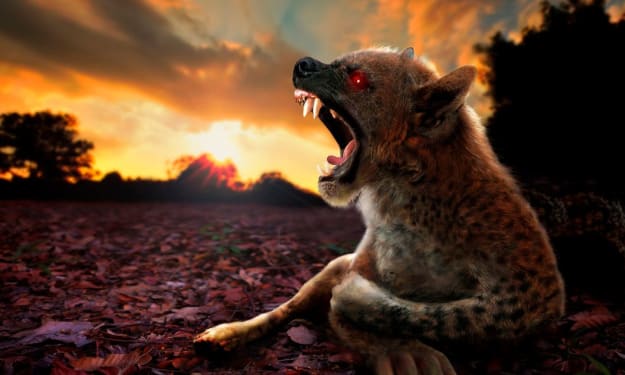
" First They Killed My Father "
I came across this again recently. Having watched it for the second time decided to post a reference ( if nothing else) to this movie as a MUST-see for anyone who appreciates both the beauty, more so the tragedy of our history as mankind, but also as humans.
After all, the word humanity, being human, encompasses the GOOD, but we forget the evil side of it as well, what makes us what we are, Human.
The first time, I knew right away, this was a movie of far too little recognition.
I was literally floored when at the end I saw 'Angela Jolie' as 'Director' of this film.
Remembering that Jolie has a child from Cambodia
( Called Kâmpŭchéa today)- solidified the reason why she directed this film, but new to my feelings, was an appreciation of how serious but thoughtful she was in the task of directing the story of her son's homeland, STILL entrenched and haunted by its past to this day.
Cambodia, Thailand, and Vietnam have a long intertwining history with each other as well, and to understand one, you have to look at all three collectively.
Jolie had been initially hesitant to adopt a Cambodian child; although she was seriously considering adoption prior to her visit, she was afraid that an outsider rearing a Cambodian child might be seen as offensive. So she posited the notion to her newfound confidant, Loung Ung, whom she had befriended after reading her memoir, “First They Killed My Father”.“I asked her as a Cambodian orphan if she would be offended by somebody like me, an outsider, [to do that], or if that would be a nice thing,”
Ung encouraged the adoption.
“Angie was maternal to everybody around her, not just children, but adults included. I wanted her to adopt me. I was orphaned when I was 8 years old, and so I think, when you’ve gone through experiences like that, there’s always a part of you that craves to have full parent figures in your life,” Ung said of her support. Jolie later said that, without Ung’s blessing, she may not have adopted Maddox.
"All adopted children come with a beautiful mystery of a world that is meeting yours," Jolie said. "When they are from another race and foreign land, that mystery, that gift, is so full. For them, they must never lose touch with where they came from. They have roots that you do not. Honor them. Learn from them. It’s the most amazing journey to share. They are not entering your world, you are entering each other’s worlds."
The actress beautifully explained, "I am very blessed to have been allowed to be their mom. I am grateful every day."
I myself have researched and read quite a bit about Cambodia and Hun Sen- the long-standing but, soon-to-be-replaced, so-called Prime Minister-more like Dictator, with his son Hun Manet, and the Khmer Rouge.
Being familiar with the country's past and association with Viet Nam as well as Thailand, the two bordering countries with Laos in the northeast stroked my interest in Loung Ung, someone wise well beyond her years.
She takes a very interesting approach to her message, which is basically just the 'story' of her life and how she survived ( with lots of help from others) a horrific past that still haunts her today.
I will attempt to give a bit of a backstory of Cambodia to help some fill in the blanks, for a better understanding of Cambodia's history, relevant to Ung's past.
Hun Sen: was called a secret name- Mai Phúc by Vietnamese leaders. Following the defeat of the Khmer Rouge regime, Hun Sen was appointed as Deputy Prime Minister and Foreign Minister of the Vietnamese-installed People's Republic of Kampuchea/State of Cambodia (PRK/SOC) in 1979 at age 26.
Hun Sen first rose to the premiership in January 1985 when the one-party National Assembly appointed him to succeed Chan Sy, who had died in office in December 1984. As the de facto leader of Cambodia, in 1985, he was elected as Chairman of the Council of Ministers and Prime Minister.
His past association with the Khmer Rouge ( AKA: the Red Khmer or Red Cambodian faction) is well known.
Khmer: considered by archaeologists and ethnologists to be indigenous to the contiguous regions of Isan, southern Laos, Cambodia, and South Vietnam, have a strong prior history with France and, still have many French-speaking ( second language) citizens.
Cambodia was integrated into the French Indochina Union in 1887 along with the French colonies and protectorates in Vietnam (Cochinchina, Annam, and Tonkin). In 1946, Cambodia was granted self-rule within the French Union and had its protectorate status abolished in 1949. Cambodia later gained its independence.
(We all remember 'The Gulf of Tonkin incident' an international confrontation that led to the United States engaging more directly in the Vietnam War).
( It was colonialized by the French for many reasons, but mainly for its supply of rubber for the ever-growing industrialization in the West).
Early influence and conflict with Vietnam are well known as well. Later what was supposed to be inactive (US Marine advisors) military aid by the US turned into an all-out War with the North Vietnamese Army and the communist Viet Cong faction under Ho Chi Minh.
After the French withdrawal (which they themselves realized was a hopeless never-ending conflict with no foreseeable outcome). The US landed itself in the same predicament, with no foreseeable way out of the conflict with positive results.
A lesson they should have already learned from the Korean War ???
In 1973, secret U.S. bombings of Cambodian territory controlled by the Vietnamese communists forced the Vietnamese out of the country, creating a power vacuum that was soon filled by Pol Pot’s rapidly growing Khmer Rouge movement. In April 1975, the Khmer Rouge captured Phnom Penh, the Cambodian capital, overthrew the pro-U.S. regime, and established a new government, the Kampuchean People’s Republic.
Pol Pot set about transforming the country into his vision of an agrarian utopia. ( he believed 'ANGKOR' now a UNESCO World Heritage site, was once surrounded by water, leading to his vision).
The cities were evacuated, factories and schools were closed, and currency and private property were abolished. Similar to Mao Zedong's communal ideology with disastrous results.
(The communes of Cambodia (ឃុំ khum/សង្កាត់ sangkat) are the third-level administrative divisions in Cambodia.
They are the subdivisions of the districts and municipalities. A carry-over to this day from rule by the Khmer Rouge).
The US has often, in a -(so-called??) blind attempt to fight for democracy, caused more harm, than good. The politics of others and colonialism have created many problems around the world, to say the least.
(In recent times the War in the Middle East and its destabilization stemming from Iraq with the death of Saddam Hussein Abd al-Majid al-Tikriti, comes to mind, but...I digress from the subject ).
Pol Pot, the architect of Cambodia’s killing fields, died of apparently natural causes while serving a life sentence imposed against him by his own Khmer Rouge.
When the UN-backed war crimes tribunal in Cambodia convicted Brother # 1 and Brother # 2, Hun Sen had the investigation terminated, knowing it would lead to his association as well.
Even today, the borderlands between Cambodia and Thailand once a haven for the Khmer Rouge are still somewhat unstable BUT, many former members now work with NGAs (non-Government Agencies) to help protect and preserve the natural habitat of their homeland by helping to plant ' observation cameras to study the wildlife close to the nondescriptive, but, heavily guarded gravesite of their former leader. An area you would not walk into unattended or w/o permission to do so from the local officials.
A more well-known film The Killing Fields, a 1984 British biographical drama film about the Khmer Rouge regime in Cambodia covers much of this time.
Loung Ung survived the Khmer Rouge genocidal regime in Cambodia. Her book, 'First They Killed My Father' and the critically acclaimed 2017 Netflix Original Movie directed by Angelina Jolie based on her memoir.
This interview with Ung deals with her life, as told by her.
Born in 1970 to a middle-class family in Phnom Penh, Loung Ung was only five years old when the Khmer Rouge Soldiers stormed into her city and her family was forced out of their home in a mass evacuation to the countryside. By 1978, the Khmer Rouge had killed Ung's parents and two of her siblings. In 1980, she and her older brother escaped by boat to Thailand, where they spent five months in a refugee camp.
Some two million Cambodians -- out of a population of just seven million -- died at the hands of the infamous Pol Pot and the Khmer Rouge regime. Of her family of nine, five survived.
Ung makes well, in reference to a book by VIKTOR FRANKL 'Man's Search for Meaning'. One for your bucket list of books to read.
It has been a life-saving piece of literature for so many, showing we are ALL interconnected and have a story to tell. We are NOT ALONE in our fight for understanding and peace within ourselves first to achieve that with each other.
About the Creator
Warren
Dissecting the ins and outs of our neighbors on the other side of the pond. In these days of protectionism, we are moving in the wrong direction.The pandemic has changed the landscape. Better understanding brings Peace, not War (Manila NCR)






Comments
There are no comments for this story
Be the first to respond and start the conversation.